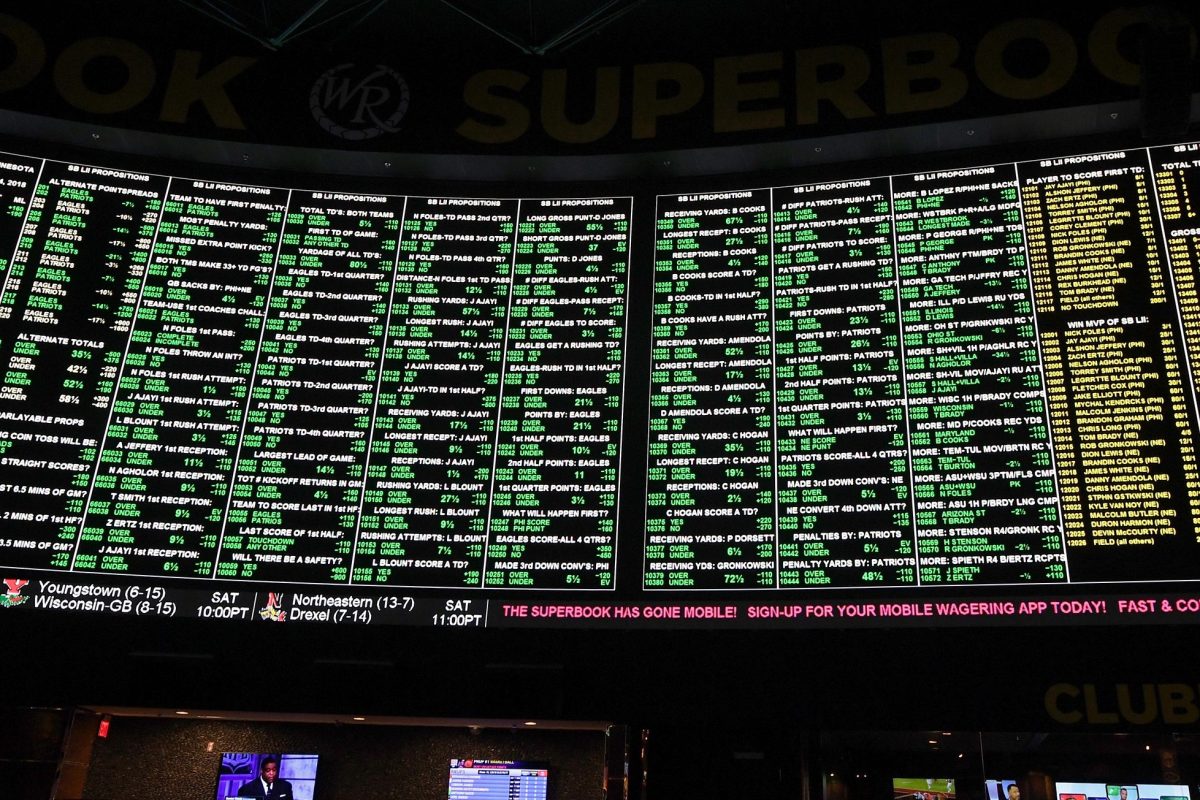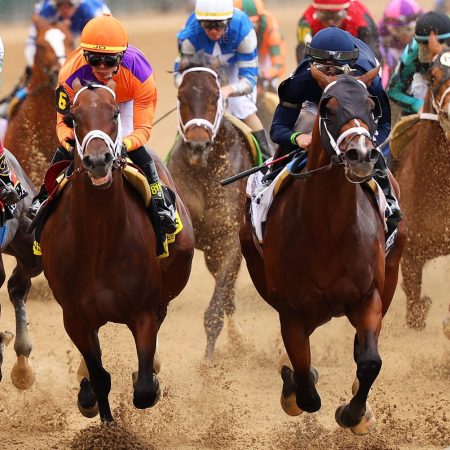There are 10.9 billion reasons to consider sports betting a success since the Supreme Court struck down a federal ban against it in 2018. That’s how many dollars in revenue the American Gaming Association said the sportsbook industry accrued this past year, per Front Office Sports. It was a number that, along with the $119.8 billion countrywide handle from 2023, blew past projections and marked a record high for a single year. Compared to 2022, sportsbook revenue grew a whopping 44.5%, and more than $40 billion alone was bet during 2023’s final financial quarter, 34.4% higher than it was during the same period the prior year.
“The full-year increase owes to several factors, such as five new jurisdictions becoming operational in 2023, including top performers Ohio and Massachusetts, as well as the high-profile arrival of ESPN Bet,” Front Office Sports wrote.
The publication also noted that continued growth at this rate is unlikely because “top-population states California, Texas, and Florida continue to show resistance to varying degrees toward legalization.” Plus, 38 states as well as Washington D.C. already allow sports gambling, so fewer states are remaining that could add to these already extraordinary tallies.
How to Have a Perfect Day Betting on Horses at the Del Mar Racetrack
Make a day of it at the oceanside track that Bing Crosby builtThis is good for the businesses that provide sports betting services and for the states that tax those organizations. It’s also a welcome development for people who believe in small government and have attached sports betting to personal rights, including politicians on both sides of the aisle. In a recent OP-ED for The Hill, Republican Congressperson Guy Reschenthaler wrote that “legalization brings sports betting out of the shadows and into the protections of a regulated marketplace.” Thousands of regulators and governing bodies now oversee legal sportsbook activities, he pointed out. He later added: “The legal industry invests millions of dollars each year in limit-setting tools to empower players, identity and location verification technology, consumer education, and problem gambling support. Illegal operators provide none of these protections, including age verifications and especially important safeguards on college campuses.”
But has this all been enough to “protect” citizens?
One day before Super Bowl 58, the National Council on Problem Gambling (NCPG), which claims neutrality on the subject of legalized betting, released a statement with sobering data about gambling addiction trends. “Between 2018 and 2021, NCPG estimates that the risk of gambling addiction grew by 30%,” the statement said. “NCPG has also seen significant increases in calls, texts and chats to the National Problem Gambling Helpline — roughly a 45% increase in calls between 2021 and 2022.”
The organization called for a “comprehensive publicly funded problem gambling program addressing prevention, treatment and research services nationwide,” and observed that new forms of gambling are being legalized across the country.
“[N]ow is the time for the federal government to play a role in mitigating the negative consequences that come from gambling,” the NCPG said. “NCPG stands ready and willing to assist members of Congress or the Executive branch in determining and implementing policies that will reduce the rate of problem gambling.”
This publication you’re reading offers tips to sports betters regularly, but as industry activity rises alongside addiction rates, and addiction experts worry about an emerging crisis associated with the behavior, we also advocate for safe, responsible betting. Take care of yourself — perhaps with these resources.
Whether you’re looking to get into shape, or just get out of a funk, The Charge has got you covered. Sign up for our new wellness newsletter today.



















